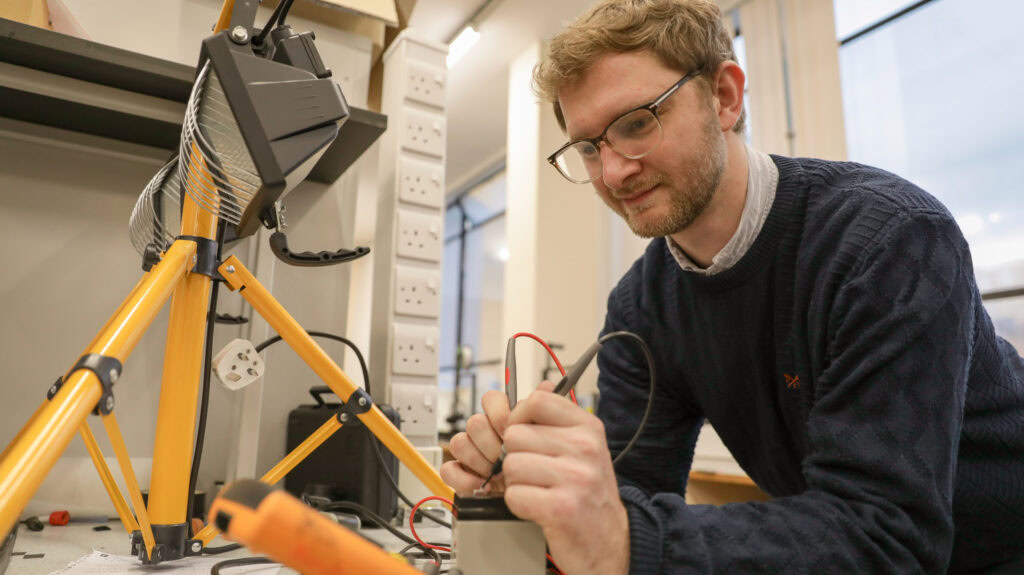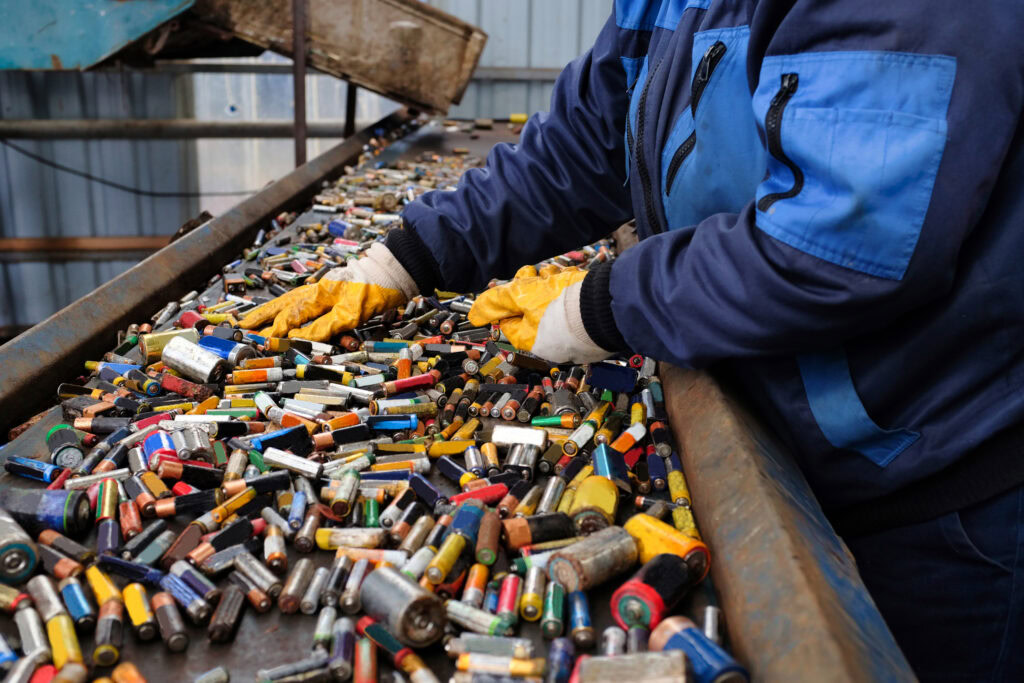The Soluble Lead Flow Battery (SLFB) is designed for large-scale energy storage for stationary applications and is able to provide power when no solar of wind power is available, and recharges when the wind blows and the sun is shining.
The system is said to be “completely circular”. It stores energy in lead dissolved in a non-flammable, water-based electrolyte. The materials can be sourced from spent lead-acid batteries and at the end of its life, can be recycled using existing, scaled processes.
SoLead Energy is one of the seven startups which are part of the Future Worlds Cohort, an intensive programme at the University of Southampton, where startups receive mentoring, support and introductions to networks.
‘Transitioning to net zero’
Dr Fraser said: “The fundamental aim of energy storage is to provide a reliable electricity network while transitioning to a net zero energy system, i.e. to minimise the damage we are doing to the environment. Many existing technologies need materials with damaging mining activities that are then shipped around the world to manufacturing sites.
“SoLead Energy was founded to create an energy storage solution that can make use of processes, supply chains and recycling solutions that already exist near to where the technology is required. In this way, new manufacturing capacity can be added quickly in a way that is kinder to the environment.”
‘Kinder to the environment’
He added: “With a greater penetration of renewable energy in electricity networks, it is becoming more difficult to balance generation with demand for electricity, increasing the strain on the grid. Increasing renewables can also lead to decreased grid stability, making power cuts more likely. With the dropping price of solar, clean energy is becoming available to those who do not have access to electricity. The SLFB can ensure that an electricity supply is available all day, not just when the sun is shining. Other energy storage technologies can solve many of these issues, too.
“However, the market leader – lithium-ion – has a high upfront cost, is prone to thermal runaway and fire (or needs expensive mitigation strategies) and isn’t economical beyond four hours of storage. Our solution is a non-flammable, cost-effective system, that has a completely circular manufacturing and recycling process that ties in with existing infrastructure and is therefore kinder to the environment.”











Subscribe for free